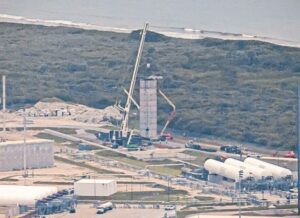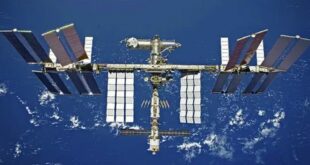
Edinburgh, 26 August, 2021. – Blue Origin moved its first stainless steel test tank to Launch Complex 36 in Florida to prepare it for testing, Ars Technica reported.
The prototype is part of the Jarvis project aiming to develop a fully reusable upper stage for the New Glenn rocket.
The tank will undergo a series of tests to determine its strength and capability to hold pressurised propellants, Ars Technica said.
The company’s primary goal with Jarvis is to bring down the overall launch cost of the New Glenn rocket to compete with SpaceX’s Starship. New Glenn’s upper stage is 7 m in diameter and has two BE-3U engines. Another aspect Blue Origin’s Advanced Development Programs unit is focusing on is selecting and finalising a design for the second stage, the report said.
The design of a re-entry vehicle could potentially take three different paths, according to Ars Technica. The first one is fitting wings onto the upper stage to make it like a spaceplane. The second method would be using an aerospike engine to be used as a heat shield during re-entry. However, this approach would need a new engine to be constructed. The third and most likely path to go down could be landing the vehicle vertically, just like SpaceX. The propellant tanks for each design mentioned would be cylindrical though, thus making it possible to move ahead with development.
Project Jarvis intends to prototype a propellant tank as soon as possible that would withstand multiple launches and re-entries. Blue Origin is using stainless steel to achieve this as it is cheaper and resists atmospheric heating. The challenge lies in its mass, however, as it is also five times heavier than composites.
 SpaceWatch.Global An independent perspective on space
SpaceWatch.Global An independent perspective on space




